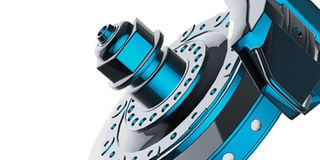How harsh braking affects your fuel consumption

Whenever you brake harshly, your car’s transmission will have to downshift to lowest gears automatically or manually to regain lost momentum. COURTESY PHOTO
What you need to know:
Hello Paul, thank you for answering my queries about the two cars: Toyota Avensis and Nissan March. But there is one thing I need clarification about. How does harsh braking lead to increased fuel consumption? Thank you, Martin.
Hello Paul, thank you for answering my queries about the two cars: Toyota Avensis and Nissan March. But there is one thing I need clarification about. How does harsh braking lead to increased fuel consumption? Thank you, Martin.
Hello Martin, harsh braking as you drive will increase your car’s fuel consumption and reduce your fuel mileage significantly. Harsh braking is when you jam your foot hard on the brake suddenly every time you brake, even without an emergency on the road.
Whenever you brake harshly, your car’s transmission will have to downshift to lowest gears automatically or manually to regain lost momentum. Lower gears require faster engine revolutions which in turn demand more fuel.
Fuel consumption increases when you have to accelerate to recover lost momentum. You can look at it another way. Momentum (mass and velocity of the car) is a force that can help to move your car in a linear direction with higher gears, lower engine revolutions and reduced consumption of the fuel energy. When you slow the car down gently or allow the car to coast in gear as you gently brake, you have a better chance of arriving at the junction traffic lights as they turn green. This will allow you to continue your journey without making a full stop, which requires acceleration in lowest gears to recover your momentum or speed.
Harsh braking will also damage your tires as well as wear out your brakes and suspension prematurely. Frequent harsh braking increases the likelihood of collision with the car in front or behind.
You can avoid harsh braking by driving sensibly, allowing ample distance between your car and the one ahead of you, anticipating traffic flow ahead of you and choosing your speed and braking action accordingly. Avoid aggressive acceleration or jack rabbit starts.




